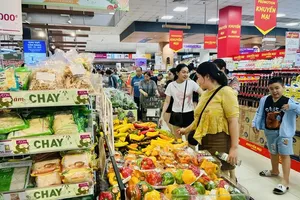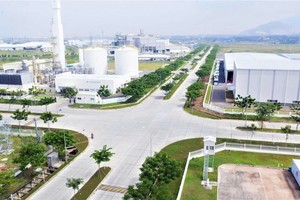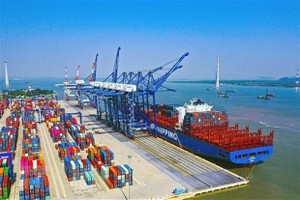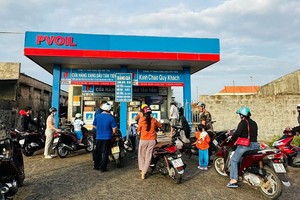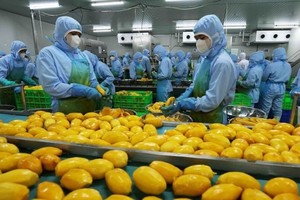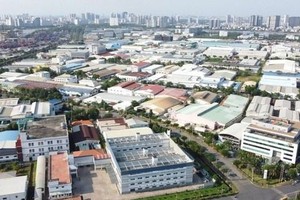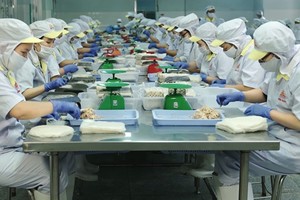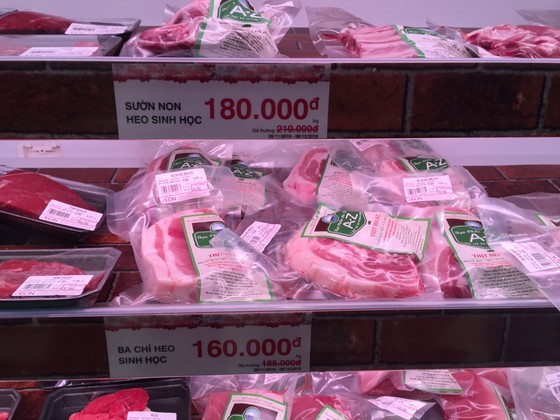
Although 15 large livestock enterprises have pledged to lower the price of pigs to VND70,000 per kilogram as of April 1, at markets and supermarkets in the South and the North, the prices of butchered pigs still nail at extremely high levels. The prices of pork remain at VND160,000-VND180,000 per kilogram or even up to VND200,000 per kilogram at some places. This has made consumers discontented.
According to the MARD, the amount of pork imported into Vietnam by April 7 this year was more than 43,553 tons of pork, an increase of more than 300 percent compared to the same period last year. Of which, pork imports from Canada accounted for 24.62 percent, from Germany 19.95 percent, Poland 13.86 percent, Brazil 9.63 percent, the US 8.08 percent, Spain 6.43 percent, and Russia 3.82 percent.
However, the leader of the MARD said that due to the Covid-19 pandemic, countries in the world have tightened control over import-export of food as domestic demand surged and it is not easy to find the sources of supply. The amount of imported pork is not enough for consumption demand in Vietnam so the country still has to rely on domestic pig production. Therefore, it is necessary to repopulate pig herds and recover pig farming. The report by the Department of Animal Health, currently, up to 99 percent of communes are eligible to announce the end of the African swine fever and can repopulate pig herds.
According to Mr. Nguyen Xuan Duong, Acting Director of the Department of Livestock Production under the MARD, the price of pigs is VND70,000 per kilogram so the price of pigs sold to slaughterhouses and processing facilities should be only around VND75,000-VND80,000 and the prices of pork sold to consumers should be around VND100,000-VND110,000 per kilogram. However, the actual prices of pork sold to consumers are from VND150,000 to VND180,000 per kilogram which is unacceptable.
He said that an increase of 25 percent in pork prices is acceptable, of which, it is moderate for high-quality pork to fetch VND160,000 per kilogram and standard pork to fetch VND140,000-VND145,000 per kilogram whereas the prices of pork are too high if being sold from VND180,000 to above VND200,000 per kilogram.
The price of pigs of the 15 large livestock enterprises is VND70,000 per kilogram, but the price of pigs in the market remains at VND75,000-VND82,000 per kilogram. Many traders said that the number of pigs from enterprises was low so they had to buy pigs from small-scale farming households at high prices.
According to the MARD, the total pigs of 15 enterprises merely account for 35-40 percent of the pig supply. The rest is provided by farms and farming households at a price fluctuating from VND73,000 to VND78,000 per kilogram, affecting the prices of pork.
Therefore, to reduce the prices of pork, according to the MARD, farms and pig-farming households also need to lower their prices. The ministry ordered cities and provinces to review and control the prices of pigs and pork in the market; asked farms and pig-farming households in provinces along with 15 large livestock enterprises to simultaneously cut their prices to VND70,000 per kilogram, then to VND65,0000-VND60,000 per kilogram and lower in the future.
Agricultural Deputy Minister Phung Duc Tien also suggested organizing a review in provinces where the African swine fever has been controlled to announce the end of the epidemic following the regulations; creating favorable conditions for farmers and enterprises to repopulate and increase pig herds, ensuring biosecurity and disease safety.
Provinces need to propagandize information about raising methods, repopulating pig herds, and increasing biosecurity and disease safety; avoiding hoarding of pigs and raising the price of pigs too much; ensuring the harmony of interests of farmers, distributors, and consumers; at the same time, encouraging consumers to use other alternative foods, such as cattle meat, poultry meat, eggs, and aquatic products.
The MARD also proposed the Ministry of Finance to consider and soon put forward policies to reduce import tariffs on pork, especially for enterprises importing pork from the US; proposing the State Bank of Vietnam to instruct credit institutions and banks to have priority policies for farmers affected by the African swine fever to access loans to recover production and for pork trading enterprises to access loans with preferential interest rates.
